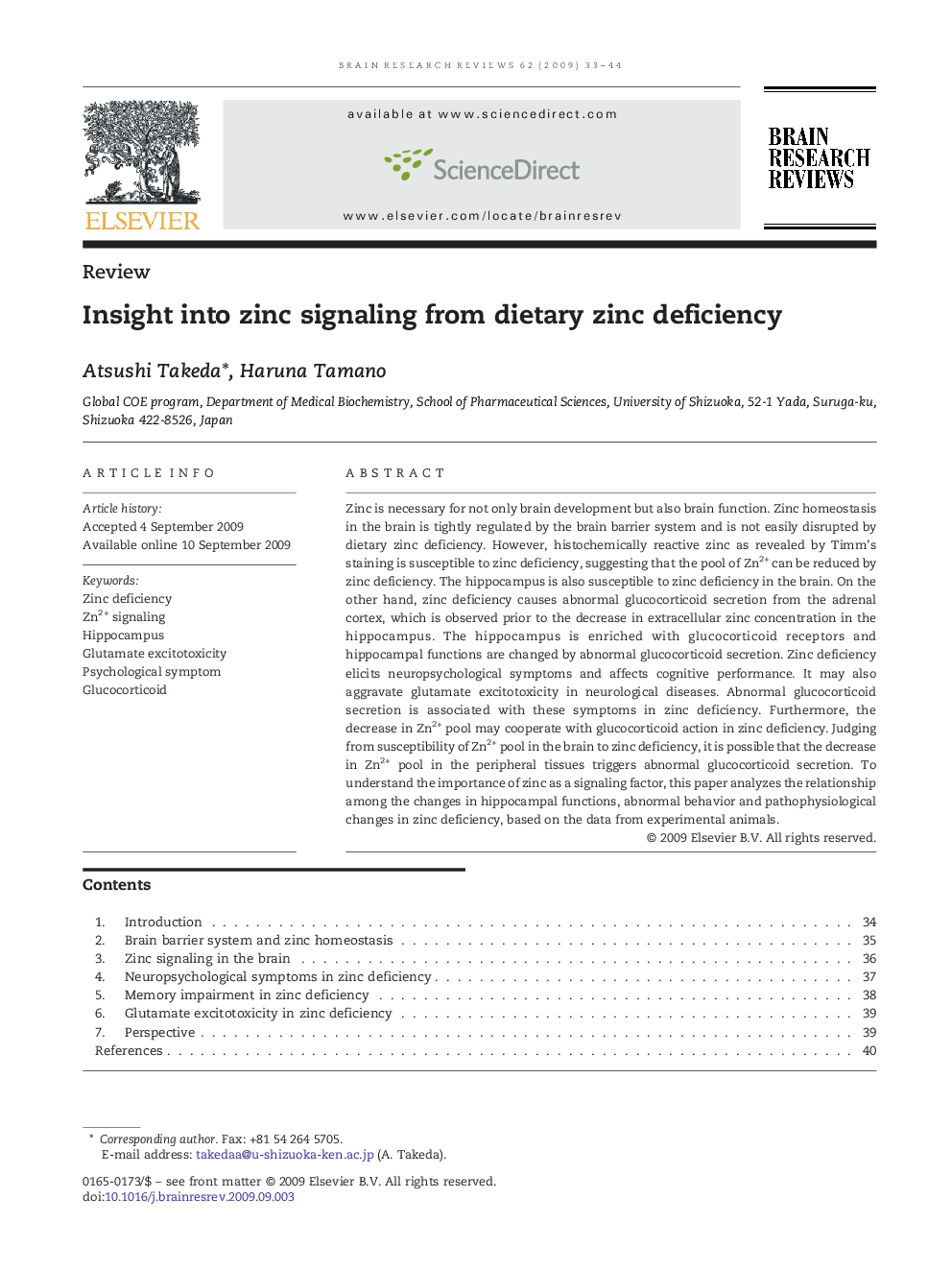| Article ID | Journal | Published Year | Pages | File Type |
|---|---|---|---|---|
| 4333697 | Brain Research Reviews | 2009 | 12 Pages |
Zinc is necessary for not only brain development but also brain function. Zinc homeostasis in the brain is tightly regulated by the brain barrier system and is not easily disrupted by dietary zinc deficiency. However, histochemically reactive zinc as revealed by Timm's staining is susceptible to zinc deficiency, suggesting that the pool of Zn2+ can be reduced by zinc deficiency. The hippocampus is also susceptible to zinc deficiency in the brain. On the other hand, zinc deficiency causes abnormal glucocorticoid secretion from the adrenal cortex, which is observed prior to the decrease in extracellular zinc concentration in the hippocampus. The hippocampus is enriched with glucocorticoid receptors and hippocampal functions are changed by abnormal glucocorticoid secretion. Zinc deficiency elicits neuropsychological symptoms and affects cognitive performance. It may also aggravate glutamate excitotoxicity in neurological diseases. Abnormal glucocorticoid secretion is associated with these symptoms in zinc deficiency. Furthermore, the decrease in Zn2+ pool may cooperate with glucocorticoid action in zinc deficiency. Judging from susceptibility of Zn2+ pool in the brain to zinc deficiency, it is possible that the decrease in Zn2+ pool in the peripheral tissues triggers abnormal glucocorticoid secretion. To understand the importance of zinc as a signaling factor, this paper analyzes the relationship among the changes in hippocampal functions, abnormal behavior and pathophysiological changes in zinc deficiency, based on the data from experimental animals.
